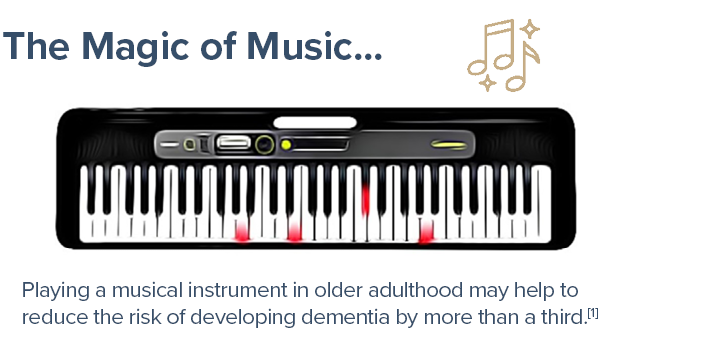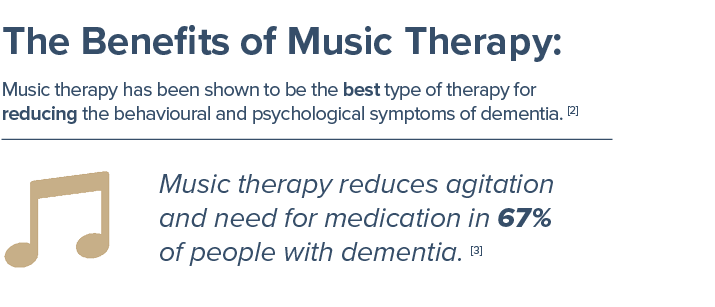
LIGHT UP MY LIFE CAMPAIGN
Casio Music UK, one of the world’s most renowned producers of electronic keyboards and digital pianos has partnered with the campaign Music for Dementia and the charitable care provider MHA in an exciting new research and learning project.
In addition to Music for Dementia’s high-profile work in promoting the benefits of music participation for people living with dementia and their carers, Casio are keen to learn how their unique lighted keyboard products can help improve access to music making within care home settings, facilitated by carers and music therapists.
 There is extensive research that shows many health and wellbeing benefits from learning and playing a musical instrument. NHS England describes music as being able to “help reduce anxiety and depression, help maintain speech and language, help at the end of life and enhance the quality of life.” Apart from the fulfilment of mastering a tune, studies have also revealed it can boost cognitive function and memory, as well as improve motor skills and arthritis.
There is extensive research that shows many health and wellbeing benefits from learning and playing a musical instrument. NHS England describes music as being able to “help reduce anxiety and depression, help maintain speech and language, help at the end of life and enhance the quality of life.” Apart from the fulfilment of mastering a tune, studies have also revealed it can boost cognitive function and memory, as well as improve motor skills and arthritis. Usually, it takes lots of practice to be able to play a musical instrument well. This can be daunting to someone who picks up the instrument for the first time, with no prior musical knowledge. Casio lighted key keyboards remove this initial barrier to musical enjoyment, making it possible to play a recognisable melody after only a few seconds, instead of months or years.
Usually, it takes lots of practice to be able to play a musical instrument well. This can be daunting to someone who picks up the instrument for the first time, with no prior musical knowledge. Casio lighted key keyboards remove this initial barrier to musical enjoyment, making it possible to play a recognisable melody after only a few seconds, instead of months or years.How Can Casio Keyboards Help?
Although the keyboard is incredibly compact and lightweight, there’s lots of technology inside including a library of 60 well-known pieces. Learning a piece couldn’t be easier: just press the Start button and watch each melody note light up in turn, showing you which key to press so as to play your chosen song.
As well as being incredibly easy to do, this way of playing has another huge benefit in that the pulse of the music automatically adjusts to the player’s input. This means that people with reduced motor abilities, for example, can play at their own pace without the music getting lost. Most importantly, this means that joy of playing a musical instrument is available to all, without the frustration that can confront many beginners.
How Do I Get Involved?
For more details about this project, and to keep in touch with the latest developments, please fill in your details using the form on this page.
With Thanks to Music For Dementia for providing the sources for this article. More information about music therapy and its benefits for people living with dementia is available here.
[1] Balbag A, Pedersen N and Gatz M. Playing a Musical Instrument as a Protective Factor against Dementia and Cognitive Impairment: A Population-Based Twin Study. International Journal of Alzheimer’s Disease Volume 2014, Article ID 836748.
[2] Abraha I, Rimland JM, Trotta FM et al. Systematic review of systematic reviews of non-pharmacological interventions to treat behavioural disturbances in older patients with dementia. The SENATOR-OnTop series. BMJ Open 2017;7:e012759.
[3] All-Party Parliamentary Group on Arts Health and Wellbeing, Creative Health: The Arts for Health and Wellbeing 2017, Older Adulthood, Music 8.6.4, 133.